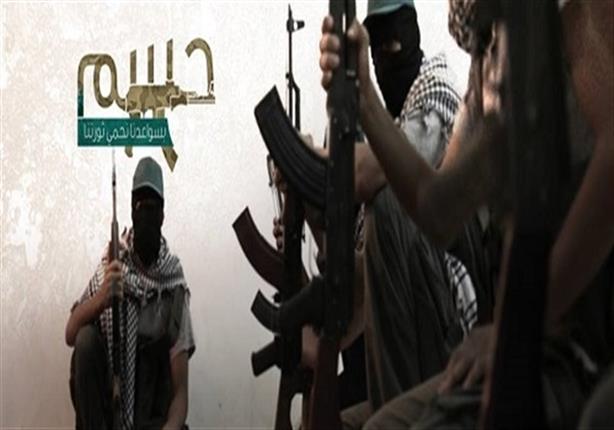Egypt announced the death of three members of militant Islamist group Hasm following a shoot-out in a southern Cairo cemetery in early October. However, few security analysts said the operation was cause for celebration, given the shadowy Islamist group’s ability to resume its attacks.
“Despite active work on the part of security agencies, this group has managed to persevere,” said Nabil Naeem, a former militant leader who subsequently renounced violence. “Hasm organises itself in clusters, which is why security agencies find it difficult to get hold of its members.”
The October 2 operation against Hasm was soon after the militant group, which is believed to be tied to the outlawed Muslim Brotherhood, claimed responsibility for an explosion at Myanmar’s embassy in Cairo, saying it was in retaliation for that country’s crackdown on Rohingya Muslims.
“This bombing serves as a warning to the embassy of murderers, killers of women and children in the Muslim Rakhine State and in solidarity with the sons of this weakened Muslim population,” a Hasm statement said.
Hasm had focused on domestic targets, specifically attacks on Egyptian security officers and public figures deemed to have collaborated in what Hasm and the Muslim Brotherhood portray as a coup against former President Muhammad Morsi. However, security analysts worry that Hasm could be updating its modus operandi.
The group posted photographs showing that it had studied the area around the embassy before the bombing, implying it could have carried out a more powerful attack. It also released a map of other diplomatic facilities near the Myanmar embassy, including the embassies of China, India, Greece and the Vatican, perhaps indicating it could attack other foreign diplomatic targets in the future.
“[We have used] utmost caution to ensure that there were no civilian casualties or innocent people [hurt] during the operation or else you would have seen a burning hell you could not have stopped,” the Hasm statement said.
In a yearly review of its activities published in late September, Hasm claimed to have killed 27 policemen and wounded 56 others from July 2016-July 2017. While Egyptian security forces have sought to target and eliminate the shadowy militant group, their priority remains the Islamic State (ISIS), a strategy Hasm has exploited.
“These conditions make it easy for Hasm to operate, even without being at the centre of security agencies’ attention at a time these agencies have other more dangerous groups to fight or threats to address,” said Saad al-Zunt, head of the Political and Strategic Studies Centre, an Egyptian think-tank.
“Hasm recruits people with no criminal or terrorist records. This helps to keep them off the radar of security agencies both before and after carrying out their operations.”
In addition to targeting soldiers and police officers, Hasm has also gone after senior public figures. In August 2016, former Mufti Ali Gomaa, a staunch backer of Egyptian President Abdel Fattah al-Sisi, narrowly escaped a Hasm assassination attempt when two men on a motorcycle fired at him as he entered a mosque. One month later, Egyptian Assistant Prosecutor- General Zakaria Abdel Aziz was unharmed in an attack in which a car bomb exploded as his motorcade passed.
Cairo was thought to have struck a major blow against Hasm following the arrest of Magdi Shalash, a senior Hasm member, in September 2016. Shalash reportedly provided Egyptians security with intelligence about the group’s operations, leading to several arrests.
In October 2016, Egyptian security officers claimed another blow against the group when senior Muslim Brotherhood figure Mohamed Kamal, believed to be Hasm’s main financier, was killed.
Hasm appears to have weathered the storm, however, demonstrating an ability to endure and adapt while the sources of Hasm’s funding puzzle security forces.
Khaled Okasha, a retired brigadier-general and Egyptian security expert, said Hasm planned and carried out attacks from furnished flats they rented only hours earlier.
“They succeeded in deceiving policemen on many occasions,” Okasha said, “but this should not in any way make us lose confidence in the police. Hasm will die like all other militant groups. Terrorists can never defeat a state.”








































admin in: How the Muslim Brotherhood betrayed Saudi Arabia?
Great article with insight ...
https://www.viagrapascherfr.com/achat-sildenafil-pfizer-tarif/ in: Cross-region cooperation between anti-terrorism agencies needed
Hello there, just became aware of your blog through Google, and found ...